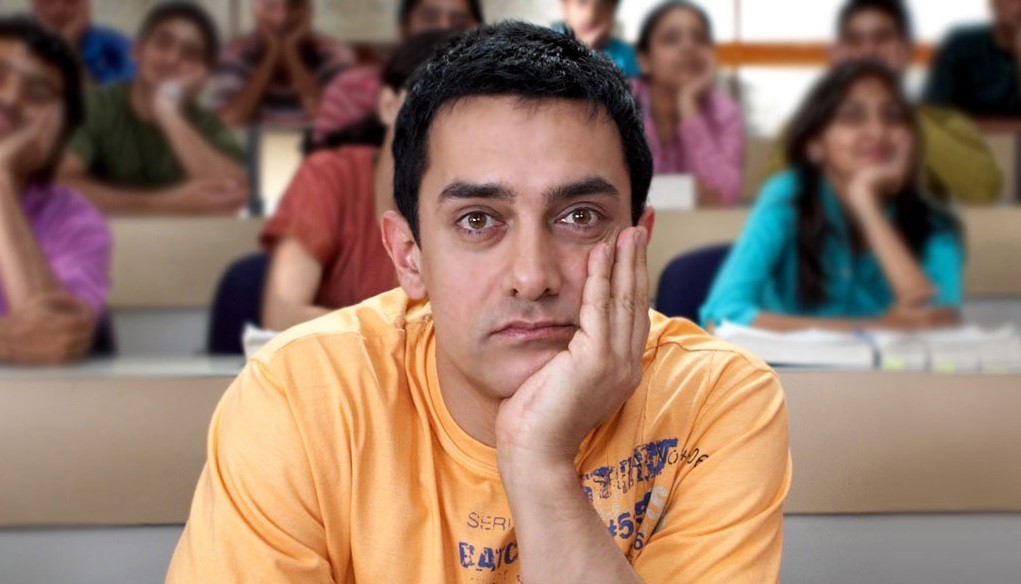The Volatile Nature of Knowledge and How To Tame It?

Half Life of Knowledge or Half Life of Facts is a very interesting term used in Scientometrics (the field of quantitative analysis of Science). It, basically, means the amount of time that has to elapse before half of the knowledge or facts in a particular field or discipline becomes obsolete or outdated.
The Curious Case Of Half Life Of Knowledge
Since new information gets added every day, a certain amount of old information becomes useless after a point of time. The time period taken for half of the existing knowledge on a given topic to become obsolete is the half life of knowledge. The rate at which old information and facts become useless is directly proportional to the rate at which new facts are added.
This isn’t a new phenomenon. But it is something to ponder upon NOW because the advent of science and technology coupled with the democratization of media has resulted in an increased amount of knowledge being added on a daily basis. The result – the half life of facts has dropped tremendously in the past decade.
Let’s elaborate with an example. Back in 1930, an engineering degree had a half life of 30 years. In 1960, it came down to 10 years. As per modern estimates, the half life of an engineering degree is between 2.5 years to 5 years, depending upon the engineering branch. No wonder software engineers have to learn new programming languages constantly to keep up with their field and stay relevant.
According to this article published in 2013, 90% of the world’s data at that point were generated in the previous two years. The trend still continues and will continue for the foreseeable future.
Of course, a major chunk of this newly added data comes from social media and the likes, which might seem to be not contributing much to ‘academic knowledge’ (it does, but that’s a different story). But it definitely gives an idea about how fast new data and information are being generated and how, because of this, we are experiencing a decline in the longevity of knowledge.
An Uncertain Future
What I am trying to say is that this decline in the half life of knowledge means by the time we finish college, whatever we learn already starts decaying. We don’t even get the chance to apply it and develop the relevant skills. This is especially dangerous for a country like India where the education system is outdated and the curriculum doesn’t see any major change in decades.
No wonder, around 80% of Indian engineers are not employable. In fact, only “around 3% of engineers possess new-age skills in areas such as AI, Machine Learning, Data Engineering and Mobile technologies. On an aggregate level, employability in these areas is around 1.5-1.7%”, according to this report.
And not just newly graduates, even people who are in the trade are struggling to keep themselves up-to-date in terms of knowledge and hence skills in order to stay relevant.
And things will become more difficult in the coming years.
How To Be Future Ready In An Ever-Changing World?
So, how do we deal with this situation? Is it even humanly possible to learn new things, imbibe knowledge and develop new skills forever?
In his book ’21 Lessons for the 21st Century’, Yuval Noah Harari, historian and best-selling author of ‘Sapiens: A Brief History of Humankind’ says:
In such a world, the last thing a teacher needs to give her pupils is more information. They already have far too much of it. Instead, people need the ability to make sense of information, to tell the difference between what is important and what is unimportant, and above all, to combine many bits of information into a broad picture of the world.
What he means is instead of learning, we should focus on the skill of learning. We are bombarded by information that is volatile. So, there’s no point in trying to absorb all this information, nor is it humanly possible.
Instead, we should be able to filter out useful information from this ever-expanding ocean of knowledge to stay up-to-date and develop the skill of using this information to develop the relevant skills. It’s about agility. It’s about rapid learning. It’s about adaptability. And it’s about being able to use that knowledge and skills to solve real-world problems.
Of course, being knowledgeable about a given field will still help but that won’t be a practical way to cope with the ever-changing requirements. So, instead of trying to be the master of a particular trade, we should try to be the Jack of all trades. Because the skill of learning fast can be developed better when exercised across domains.
Now, this particular approach to learning isn’t something that everybody can adapt to very easily. It will require a drastic change in the global education systems. Are we prepared for that?
This is where technological intervention is required.
Employability depends upon both knowledge and skills. I did my graduation in Electronics and Communication Engineering during which I learned, among other things, probability and statistics, and C. As an engineer working with Aircel, I never had to use any of these. Later I did my Masters in Journalism and Mass Communication and joined Embibe as a Content Writer.
During this period, I was intrigued by Data Science and started learning Python, then R, and lastly MATLAB. My knowledge of probability and statistics and C helped me in this, in connecting certain dots and in developing these new skills.
Well, to be honest, I haven’t really developed these skills; I just have a little working knowledge. I do not aspire to become a Data Scientist but practicing these things from an entirely different domain than the one I am working in has definitely helped me develop my skill of learning and problem-solving abilities in general. At the same time, it has changed the way I write for marketing. I have become more data-driven, for example. It has also helped me to make sense of data which is something that content marketing too requires.
Maybe not a very good example, but what I am trying to say is knowledge is ever-growing and hence, cannot be imbibed fully. But intelligence and even skills are selective in terms of the knowledge required to develop them and hence, is in our control. Employability depends upon this particular area where knowledge and intelligence/skills overlap.
And this is where Embibe’s technology comes into the picture.
How?
Knowledge Graph As The Technological Intervention
As I have mentioned in this article, the Knowledge Graph, at this point, is a network of around 45,000 interconnected concepts, mostly from school-level Physics, Chemistry, Maths, and Biology. These concepts are tagged with subjects, questions, exams, difficulty level, skills required to master them, and hundreds of other parameters.
Now, imagine if the Knowledge Graph had the entire universe of knowledge, along with the inter-relationships, and other metadata. With knowledge growing exponentially, this is something that needs to be automated but we are working on this too. Our ATG (Automated Test Generator) can already detect the subjects, concepts, difficulty level, ideal time, etc. of questions that are fed into it in a certain format. As it becomes smarter, it will be able to handle more complex data fed into it and make the knowledge graph richer and up-to-date without any human intervention.
Coupled with these, we have our smart algorithm that detects the behavioral aspects of learning. Well, at this point, it is more focussed on identifying the test-taking gaps (like gaps in time management, question selection, overall test-taking strategy), but I think that’s a good starting point to identify and solve more complex aspects of learning that can eventually be implemented to solve (real-life) problems. In any way, what it is doing now, i.e. identifying the test-taking gaps, is basically changing the way we learn. There’s a certain shift in the learning process and it is more inclined towards improving the learning skills.
The way the product is evolving, I am sure, it will eventually be the one step-solution for learners of all stages and backgrounds to identify their learning gaps, learn the things that are more suited for their career goals, and develop the necessary skills.
The Skill Of Learning – It’s More About The Attitude
Having said that, a shift in focus from learning towards the skill of learning needs a shift in attitude.
This particular aspect is in the fabric of Embibe. Ask anybody working at Embibe about the learning opportunities here and they will agree that it’s one of the best places to learn and upskill yourself.
Four years ago, when I had just joined, we were a team of 40 and each person had to wear multiple hats. I was having difficulty coping with it. I remember Aditi telling me once, “If you are asked to go from point A to point B and you focus all your energy into doing it, you will be a great employee. But I don’t want employees working here at Embibe. I want people with an entrepreneurial mindset. I want them to think of going to C, D, E, F… Z on their own.” And I asked her, “How do I do it?” She said, “Think like a woman. Multitasking comes naturally to most women.”
This is probably one of the biggest lessons I learned from her. It’s because of these small conversations I have had with her and the constant motivation and guidance from others working here that I have learned so much.
Give me a manageable data set and I will probably be able to clean it up and run a linear regression algorithm on it to give you some insights. Give me a server and I can create a website for you from the scratch using WordPress, Ghost, or even the GitHub powered static site generators. I might not be good enough to get myself a new job in a new domain but this little knowledge has definitely helped me as a Content Writer and then as a Content Editor. For example, since I know how to create a site, many aspects of technical SEO make sense to me.
What I am trying to imply here is that while technological intervention is a must to bring this change (and Embibe will bring it), the more important thing to do is change our attitude and perspective. And this is what we, at Embibe, are doing. After all, revolutions happen only when you walk the talk… when you are a dreamer and a doer… 🙂
(This article was first published on LinkedIn.)




